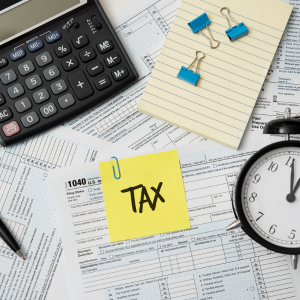
Understand the tax implications of selling a home in Dallas, TX, and maximize your profits. Consult We Buy Houses For Cash Dallas for expert advice on real estate taxes and compliance with local regulations.
Understanding Capital Gains Tax Implications When Selling Your Dallas Home
What are the current capital gains tax rates in Texas and at the federal level?
If you’re planning to sell a home in Dallas, knowing the capital gains tax rates is important. The IRS taxes capital gains based on your income. For long-term gains, which are on assets held for more than a year, the rates are 0%, 15%, or 20%, depending on your income bracket. Texas doesn’t have state capital gains taxes, which benefits Dallas homeowners.
- Federal Long-Term Capital Gains Rates:
- 0% for individuals with taxable income up to $44,625
- 15% for incomes between $44,626 and $492,300
- 20% for incomes above $492,300
- Short-Term Capital Gains: These are taxed at the same rate as ordinary income, which may be higher.
To follow IRS rules when selling your Dallas home, it’s important to understand both federal and local taxes.
How do short-term versus long-term capital gains affect my tax liability?
If you want to keep your tax bill down when you sell your Dallas home, you need to know the difference between short-term and long-term capital gains.
- Short-Term Capital Gains: If you sell your home within a year of buying it, any profit is a short-term gain. This profit is taxed like regular income, which could mean a higher tax rate depending on your tax bracket and adjusted gross income (AGI).
- Long-Term Capital Gains: Selling after holding the property for over a year makes any profit a long-term gain, usually leading to lower tax rates.
The IRS bases these gains on how long you’ve owned the property. Understanding your tax bracket and working with a tax advisor can help you optimize your taxes.
Does selling my primary residence in Dallas qualify for any tax exemptions or deductions?

There may be tax benefits for selling your main home in Dallas if certain conditions are met. When you sell your home, the IRS lets you keep some of the money from having to pay capital gains tax:
- Single Filers: You can exclude up to $250,000 of gain.
- Married Couples Filing Jointly: You can exclude up to $500,000 of gain.
Before you can sell, you must have owned and stayed in the home for at least two of the last five years. This exception is in the tax law to help people who own their own homes.
If you’re selling a home in Dallas, these tax rules can help you make smart financial decisions. Getting help from a tax expert can help you understand these benefits better and make plans for selling your house.
Calculating Capital Gains Tax on Your Dallas Home Sale
How do I determine the cost basis of my Dallas home for tax purposes?
When you sell your Dallas home, you need to know the cost base in order to figure out your capital gains tax. Start with how much you paid for your home the first time. Then think about these things:
- Adjusted Basis: Include major improvements that boost your home’s value, extend its lifespan, or change its use. Keep records of significant renovations.
- Real Estate Fees: Add initial purchase costs like title insurance and transfer taxes to your cost basis.
Subtract any depreciation if your home served as a rental or business property to find your adjusted basis. This helps you calculate the right amount of capital gains.
What expenses are deductible when calculating capital gains from my home sale?
Several costs from selling your home can be deducted to reduce your capital gains:
- Realtor and Broker Fees: Commissions paid to real estate professionals are fully deductible.
- Closing Costs: Deductible expenses include legal fees, title insurance, and document preparation.
- Selling Expenses: You can deduct advertising costs, home staging fees, and sale-specific repairs.
Keep detailed records and receipts of these expenses to lower your taxable capital gains effectively.
How do home improvements and renovations impact my capital gains calculation?
Home improvements and renovations can play a big role in your capital gains calculation by increasing your property’s adjusted basis:

- Home Improvements: Permanent upgrades that add value or extend the home’s life count. This includes adding rooms or updating kitchens and bathrooms.
- Adjusted Basis and Depreciation: Improvements increase your adjusted basis, but subtract any depreciation if applicable.
- Property Value Enhancement: Enhancing your property through capital improvements not only boosts living conditions but also reduces taxable gains.
Track all renovation receipts and invoices to properly reflect a higher adjusted basis and lower your taxable capital gains.
Understanding these factors prepares you for the tax process and might reduce your tax burdens. If you’re thinking about selling, consult a tax professional to capture all eligible deductions and accurately calculate your capital gains.
Strategies to Minimize Capital Gains Tax in Dallas
Can a 1031 exchange help defer capital gains taxes on my Dallas property?
Your capital gains taxes may not be due until after you sell an investment property in Dallas if you use a 1031 trade. This IRS rule lets you trade in one business property for another without having to pay taxes on the new property right away. It’s great for real estate investors who want to put their money back into homes that are worth the same amount or more.
- Key Points:
- Deferral: You defer capital gains taxes until you sell the property without reinvesting.
- Investment Property: The property must be used for business or investment.
- Like-Kind Requirement: The properties exchanged must be similar, usually real estate for real estate.
Talk to a tax professional to ensure you follow the rules and get the most out of a 1031 exchange.
What are the eligibility requirements for the primary residence exclusion?
Homeowners in Dallas might qualify for a primary residence exclusion, which reduces the capital gains tax when selling a home. The IRS offers an exclusion of up to $250,000 for single filers and $500,000 for married couples filing jointly.
Eligibility Criteria:
- Ownership Test: You need to have owned the home for at least two years out of the last five before selling.
- Use Test: The home must have been your main place of residence for at least two years out of the last five.
- Exclusion Frequency: You can use this exclusion only once every two years.
Meeting these conditions can reduce your tax burden when you sell your home.
How can I strategically time the sale of my Dallas home to optimize my tax situation?
Timing the sale of your Dallas home is important for your tax situation. By looking at market trends and your financial status, you can reduce taxes owed.
- Market Trends: Selling when prices are high can increase your gains, affecting taxes.
- Tax Bracket Considerations: Timing your sale with your tax bracket could lower your tax rate.
- Year-End Planning: Closing a sale early in the year might offer more tax planning options.
Work with a tax advisor to plan a sale based on your financial goals while minimizing capital gains taxes.
We Buy Houses For Cash Dallas suggests using these strategies to manage capital gains while staying within IRS regulations.
Essential Recordkeeping for Dallas Home Sellers
What documents should I keep for tax purposes related to my Dallas home sale?
When you sell a house in Dallas, TX, it’s important to keep good records. You can claim tax benefits and follow IRS rules if you have the right paperwork. Some important papers to keep are:
- Closing Documents: Save the HUD-1 form or Closing Disclosure that shows the final financial details of the sale.
- Sale Agreements: Keep copies of all contracts between you and the buyer.
- Mortgage Payoff Statements: Provide proof that your mortgage was paid off at closing.
- Title Transfer Papers: Keep records that prove ownership transfer.
These records help during tax filing and can be useful if disputes arise.
How long am I required to retain these records?

Knowing how long to keep tax-related documents is crucial. The IRS suggests keeping tax records for at least seven years, which matches the statute of limitations for audits and amendments. For real estate documents in Dallas, follow this schedule:
- Tax Records: Keep them for at least seven years after the sale.
- Real Estate Documents: It’s wise to keep closing documents indefinitely, as they may be needed for future transactions or legal matters.
Following these recordkeeping rules protects you from potential audits and ensures compliance with IRS standards.
What are the potential penalties for inadequate record-keeping?
Not keeping proper tax records for your home sale can lead to serious problems. The IRS can impose financial penalties if it finds issues during an audit. Potential consequences include:
- Financial Penalties: Poor records can lead to fines or interest on unpaid taxes.
- Legal Consequences: Lack of documentation can result in more scrutiny or legal issues.
- Increased Tax Liability: Without proper records, you might miss out on eligible deductions, raising your tax bill.
Good record-keeping reduces these risks and makes selling your Dallas home a smoother process. Consider consulting a tax professional for more guidance on managing your documents.
By handling your records well, you avoid issues and ensure compliance with tax laws.
Resources and Expert Advice for Dallas Home Sellers
Where can I find reliable information about Texas capital gains tax laws?
Understanding Texas capital gains tax laws is important for Dallas home sellers. You can find trustworthy information by exploring these sources:
- Texas Real Estate Commission (TREC): They offer clear guidelines for real estate transactions to comply with state rules.
- Internal Revenue Service (IRS): Their resources provide insight into federal taxes, including those on real estate sales.
- Online Articles: Platforms like Investopedia and Nolo have articles explaining how tax laws affect real estate.
At We Buy Houses For Cash Dallas, we bring extensive experience and a strong commitment to making your home-selling process as smooth as possible. Whether you’re a first-time seller or seeking expert guidance, we’re here to support you every step of the way. We buy houses in Fort Worth, so contact us today to see how we can help you move forward with confidence.
Should I consult a tax professional for assistance with my home sale?
It’s smart to talk to a tax professional, such as a Certified Public Accountant (CPA), when selling your home. They provide:
- Expert Advice: Clear guidance on managing taxes to comply with IRS rules.
- Financial Planning: Help in preparing for any potential taxes and optimizing financial outcomes.
- Consultation Services: Custom strategies to lower your tax burden and make the sale process smoother.
Hiring a tax professional ensures your home sale follows all legal and financial guidelines, giving you peace of mind.
How can We Buy Houses For Cash Dallas help me navigate the complexities of selling my home in Dallas?
Selling a home in Dallas can involve many steps, but We Buy Houses For Cash Dallas makes it easier. Our services include:
- Market Insight: We know the Dallas real estate market well, which helps us provide accurate property value assessments.
- Simplified Selling Process: We guide you through the sale, reducing stress and uncertainty.
- Negotiation Skills: Our team works to maximize your home’s value through effective negotiations.
Choosing We Buy Houses For Cash Dallas gives you access to our extensive expertise and dedication to ensuring a seamless home-selling experience. Whether you’re selling for the first time or looking for expert guidance, we’re here to help every step of the way. Contact us today to get the support and resources you need to succeed.
FAQS:
What are the tax implications of selling a home in Dallas?
When you sell a home in Dallas, you might have to pay a capital gains tax if your home has increased in value. You can qualify for an exemption under Section 121, which allows up to $250,000 for single filers and $500,000 for joint filers, subject to certain conditions.
How can I reduce my tax burden when selling property in Dallas, TX?
Consider a 1031 exchange for investment properties to defer capital gains taxes by reinvesting in another property. Keep records of deductible expenses like repairs and maintenance to lower taxable income.
Are there specific real estate tax considerations in Texas that differ from other states?
Texas doesn’t have a state income tax, but property taxes can be high. It’s important to understand local tax rules and consult a tax advisor for specific advice relevant to your situation.
What is depreciation recapture, and how does it affect selling a rental property?
Depreciation recapture occurs when selling a rental property on which you have claimed depreciation. You may owe taxes on the depreciation at a rate of up to 25%, impacting your overall tax obligations.
How does marital status impact the tax effects of selling a home in Dallas?
Marital status influences the capital gains tax exemption. Married couples can exclude a larger amount than singles. Knowing your filing status helps maximize tax benefits when selling a property.
What role do capital improvements play in reducing taxable income?
Capital improvements can raise your home’s basis, potentially reducing capital gains taxes when you sell. This includes major upgrades or additions that increase property value, not just basic repairs.
Why is an appraisal necessary when selling a home in Dallas?
An appraisal determines fair market value, helping you identify potential taxable gains. It ensures you set a competitive selling price that aligns with the current Dallas real estate market.
What are the tax implications of selling a property that was inherited in Texas?
Inherited properties receive a stepped-up basis, meaning their value is adjusted to market value at the time of inheritance. This can reduce capital gains taxes when selling. Confirm details with a tax professional.
Key Insights
- Understanding the tax implications of selling a home in Dallas, TX is crucial for homeowners. Our comprehensive Dallas home selling guide covers these important considerations, including real estate tax implications.
- Navigating Dallas property tax implications requires knowledge of local tax laws. We provide expertise in managing the home sale tax in Dallas, ensuring you are informed about all Dallas real estate tax implications.
- When selling a home in Texas, it’s important to consider potential tax consequences, including federal taxes and depreciation recapture. Knowing the tax impacts on selling a home aids in smart financial planning.
- Our team helps you understand the tax effects of selling a home in North Texas, from capital gains tax to depreciation recapture, to minimize liabilities.
- For those selling property in Dallas, we outline steps to manage tax variations for selling homes in Texas, considering factors like inheritance or marital status.
- We offer expert guidance on tax considerations for Dallas home sellers, including insights into 1031 exchange opportunities and leveraging tax exemptions effectively.
- Stay compliant with Texas real estate commission regulations and access strategic tax planning advice to optimize tax benefits when selling your home.
- Our services include advice on calculating fair market value and understanding market trends, which are crucial for determining net proceeds and reinvestment opportunities.
- Explore financial planning options such as downsizing, upsizing, or reinvesting. We support retirement planning and aligning your home’s sale with long-term goals.
- Access our network of professionals, including tax advisors, accountants, and real estate professionals, to efficiently handle the complexities of selling your home in Dallas.
- Stay updated with tax reform updates and use strategies to reduce tax burdens while maximizing returns through effective sales approaches.
- Get answers to common real estate questions by browsing our extensive FAQ section, covering topics from state and local taxes to capital gain tax obligations.
- Contact us for a consultation to personalize strategies for your unique selling situation, ensuring a smooth transition and maximized financial outcomes.

![companies that buy houses [market_city]](https://image-cdn.carrot.com/uploads/sites/75714/2023/10/Company-That-Buys-Houses-1920x800.jpg)